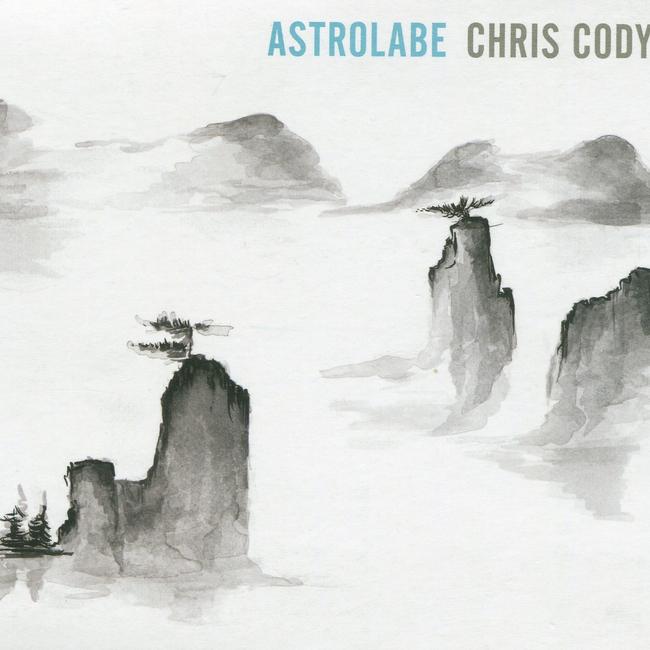Pearl Jam returns with 11th album Gigaton
It may take some digging to get to, but there’s life yet within Pearl Jam’s heart and lungs.

ROCK
Gigaton
Pearl Jam
Monkeywrench/Republic
It may seem a moot point to note how much things have changed since the last time Pearl Jam released a record, but at seven years it’s worth considering this is the longest gap in the group’s career. This is, after all, the band that powered through the 1990s well after the fall of grunge, then unflinchingly took on the Bush era after that. For it to go quiet simply felt uncharacteristic. With the recent release of Gigaton’s lead single Dance of the Clairvoyants, it became clear that Pearl Jam wasn’t struggling to find something to say but finding a fresh way to say it. Dance is arguably the band’s most ambitious single since 1998’s Do the

Evolution. It forges into new-wave synths and glam guitar while never sacrificing its full-band intensity or Eddie Vedder’s belligerence. Gigaton, admittedly, doesn’t reach similar heights across its 56-minute running time. Still, is it worth investigating? For long-time fans, absolutely. Urgent guitars propel Superblood Wolfmoon to excellence, while the Zeppelin-sized swing of Quick Escape recalls the band’s late-90s revival. There’s still a restlessness and conviction within Gigaton’s key tracks that drive the members of Pearl Jam well into the band’s 30th year of existence — Vedder especially, but also drummer Matt Cameron, who takes the wheel on Who Ever Said and asserts utter dominance in its back end. It’s not entirely smooth sailing: the one-two of meandering ballad Buckle Up and the dreary, unplugged Comes Then Goes on the record’s second side are among the most inconsequential, middling songs the quintet has written. There’s also the toothless political commentary on Seven O’Clock, in which Vedder refers to the President as “sitting bullshit” — a sledge roughly on the same level as “commander-in-cheese”. Even so, when the band is able to retain a collective sense of focus, you’re reminded as to what made you a fan to begin with. It may take some digging to get to, but there’s life yet within Pearl Jam’s heart and lungs.
David James Young
-

JAZZ
Astrolabe
Chris Cody
Independent
Astrolabe is a suite inspired by French navigator/explorer Jean-Francois de La Perouse, who sailed into Botany Bay on January 24, 1788, shortly after the First Fleet. The narrative spoken by an actor in the original theatre production, which gave the music a fascinating context, is missing, so the music is in a sense orphaned. Still, composer/pianist Chris Cody aims not to write a travelogue, but “to capture some of the colours and emotions” he felt after reading La Perouse’s journal. Detailed liner notes provide context, and the album works well as standalone music. The ensemble is a standard jazz sextet, plus violin and accordion, allowing Cody to construct an exotic soundscape. Astrolabe features eight leading Sydney musicians, but is a showcase for the gifted Paul Cutlan on flute, clarinet, bass clarinet and tenor saxophone.
Eric Myers
-

INDIE POP/PUNK
Race Car Blues
Slowly Slowly
UNFD
With its whining guitar riffs, quick-tempo percussion and striking lyrics, the third album by Melbourne quartet Slowly Slowly is a continuation of what came before and a small step towards a new sound. Like on 2018’s St Leonards, these 12 songs explore a range that covers light and catchy, slow and melancholy through to heavy and angsty, with Ben Stewart’s emotive voice foregrounded throughout. On this work, the band experiments with a duet featuring Bec Stevens and her overlapping lyrics on Safety Switch, and Stewart goes deep and dark on Soil. Race Car Blues takes the band in a pop-punk direction only hinted at previously. There’s a late-90s feel to Creature of Habit Part 2 and Jellyfish. The latter is not Slowly Slowly’s best song but it has become its biggest hit, thanks to a prominent result in the Hottest 100.
Charlie Peel
-

AMBIENT/ELECTRONIC
Conference of Trees
Pantha Du Prince
BMG/Rough Trade Records
German producer and composer Hendrik Weber — aka Pantha Du Prince — is an artist whose work spans electronic, minimal and house compositions. Tinkling keyboards dance over sweeping strings, building into a hazy forest of life based on organic and synthetic sounds. Only midway through the album does a driving, techno beat emerge. Skittering percussion and echoing synths replicate the sound of birds, insects and animals moving through undergrowth, soaring through open air, digging into the earth. Conference of Trees is a strange, transcendent beast: it is thoroughly logical and melodic, while also seeming to be crafted spontaneously from the forest. There’s something both luminescent and also vaguely threatening in the rattle, hum and tinkle of lingering piano notes.
Cat Woods
-

INSTRUMENTAL
Across the Universe
Al Di Meola
earMUSIC
Seven years after his inaugural bash at interpreting Beatles songs in a guitar-oriented context, Al Di Meola is back with an expanded instrumental tribute exhibiting imaginative harmonic and rhythmic changes. While inveterate Fab Four fans might not dig the American string-bender and multi-instrumentalist’s more convoluted takes, they will certainly relish his sensitive solo acoustic renditions of Here There And Everywhere and Yesterday. Elsewhere, Di Meola’s playing acknowledges Lennon & McCartney’s immortal melodies while improvising on the heads jazz-style, without overdoing the pyrotechnic runs. A few tracks are percussion-heavy, but mostly the guitarist’s arrangements are thoughtful without being obsequious, with Norwegian Wood retaining its original Indian inflection.
Tony Hillier
-

POP/R&B
After Hours
The Weeknd
XO/Republic Records
The fourth album by Canadian pop artist Abel Tesfaye — better known as The Weeknd — is an homage to the 80s wrapped in slick production that highlights his signature light tenor vocals. The 14-track release is awash with cinematic synth-scapes, combining nostalgic post-disco and new wave with dream pop and R&B. Hit single Blinding Lights is clearly influenced by 80s sounds, and the deep synths on opener Alone Again would feel right at home on the Stranger Things soundtrack. Hardest To Love pits a soaring melody against club beats, while lead single Heartless centres on a self-loathing villain with grimy percussion and numerous expletives. After a guest appearance by Tame Impala, the album ends with whirring arpeggios on Until I Bleed Out, while Tesfaye repeats: “I don’t need it anymore.”
Emily Ritchie


